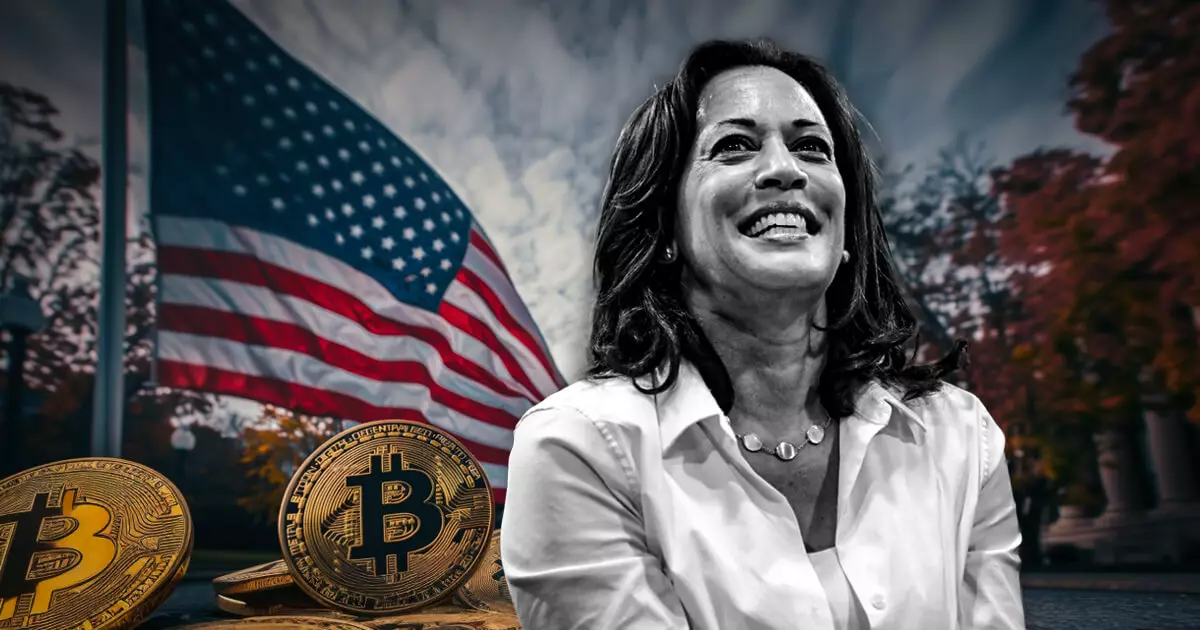The cryptocurrency sphere is increasingly under the microscope of political influence, as regulatory approaches shape the future of digital assets. With the presidential elections on the horizon, the ideological positions of key candidates such as Vice President Kamala Harris and former President Donald Trump could have significant ramifications for the crypto industry. A recent analysis conducted by Alex Thorn, head of research at Galaxy Digital, illuminates how candidate platforms might either bolster or suffocate crypto initiatives in the U.S.
Comparative Overview of Candidate Stances
Thorn’s ‘policy scorecard’ provides a detailed comparison of the candidates’ proposed policies regarding the crypto industry, unveiling their respective ramifications on taxation, Bitcoin mining, self-custody, and banking regulations. According to the scorecard, a win for Kamala Harris may not disrupt the industry significantly and indeed may offer a slightly more favorable environment than what is currently existed under President Biden. Conversely, Trump’s candidacy appears to advocate for more substantial changes that could enhance the climate for cryptocurrency both politically and economically.
Optimism emanates from the perspectives shared by Galaxy’s analysts. Their research reflects a belief that Harris, compared to Biden, may adopt a less combative stance towards the crypto industry, despite some areas of concern, particularly around taxes and regulatory frameworks. This mixed outlook points to a pivotal moment where the crypto community might benefit from a shift in political leadership.
Tackling Taxes: The Divergent Paths of Harris and Trump
When examining taxation policies, significant distinctions emerge between the two candidates. Thorn’s analysis indicates that Kamala Harris’ approach might be perceived as “extremely hostile” to the cryptocurrency sector, especially given her plans to roll back tax cuts for affluent taxpayers—an initiative likely to impact wealth in an industry where financial gains can be substantial. In stark contrast, Trump’s policies are viewed as more favorable, potentially promising enhanced clarity concerning digital asset tax obligations. If Trump were to secure victory, this clarity could lay the groundwork for a diverse array of crypto-related projects to flourish.
Taxation is vital for crypto investors and innovators alike; if regulatory ambiguity prevails, it could stifle investment and innovation—a precarious position for a nascent industry that thrives on agile opportunities. Thus, the contrast between the candidates on tax issues could be a decisive factor for many stakeholders in the crypto economy.
Another area of significant divergence is Bitcoin mining. President Biden’s administration previously suggested imposing a hefty 30% tax on miners, a move that would almost certainly dampen mining activities. However, Harris has shown a softer approach in her rhetoric. Coincidingly, Trump has positioned himself as a staunch supporter of Bitcoin miners, referring to mining as part of “domestic manufacturing.”
This support for Bitcoin mining is not just lip service; Trump’s dialogue surrounding the industry resonates positively within mining communities, which may bolster their operations if he were to regain office. Harris, while showing softer tones than Biden, may still represent an environment that could hinder growth relative to a Trump-led administration, highlighting the stakes involved for both prospective candidates as they navigate the complexities of crypto mining regulations.
Banking regulations form another critical aspect of this discussion. Thorn highlights that Harris could ease restrictions akin to Biden’s “Operation Chokepoint 2.0,” a program viewed as stifling to crypto enterprises seeking access to banking services. Conversely, Trump has positioned himself firmly against this operation, proposing that banking institutions ought to be unfettered in their engagement with blockchain technology.
The self-custody of digital assets remains another contentious topic between the two candidates. While neither has been vocally opposed, Harris’s advisors have previously expressed skepticism, whereas Trump has articulated his support for self-custody rights, promoting a sense of autonomy for crypto holders.
As the U.S. heads toward an election rife with implications for the burgeoning crypto economy, the insights gathered from Galaxy’s analysis reveal a pivotal crossroad. The candidate elected could significantly influence regulatory clarity and the environment for innovation in the cryptocurrency space moving forward. With burgeoning digital assets like altcoins and decentralized finance at stake, the choice seems clear: a Trump victory presents an opportunity for expansive upside potential within the crypto realm, while a Harris presidency, characterized by limited downside risk, may, in many ways, merely continue the status quo established under Biden. In either outcome, stakeholders must navigate uncertain waters, striving to harness the winds of change shaping their digital future.














Leave a Reply